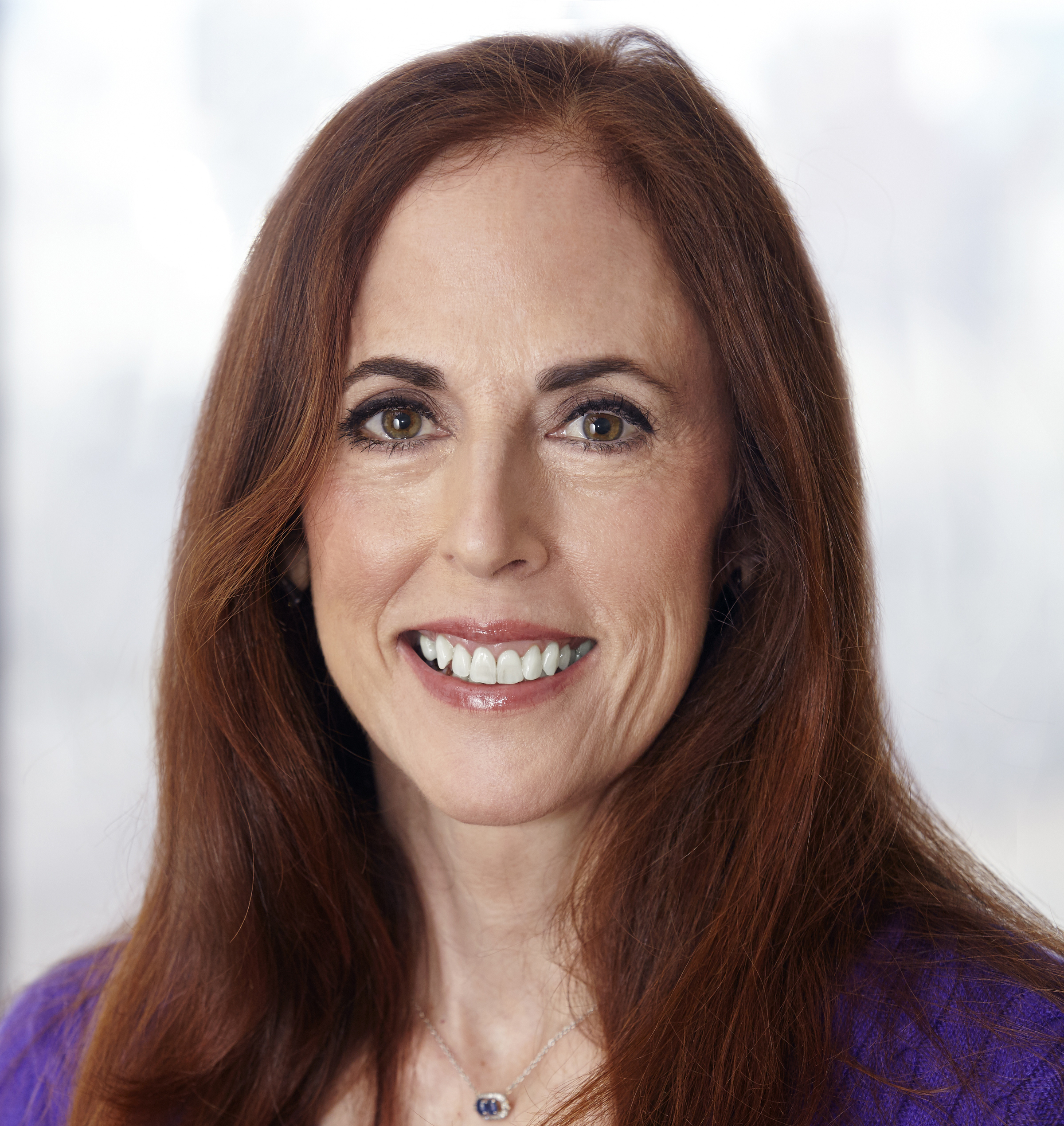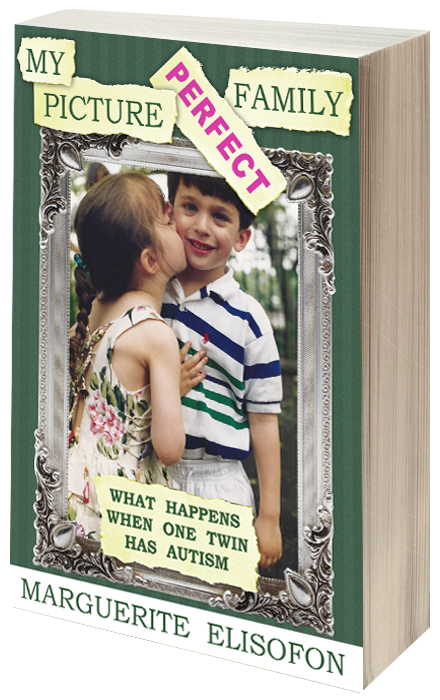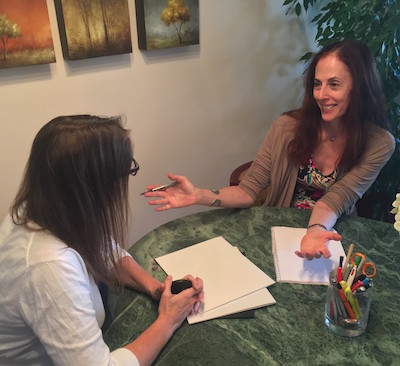 I set my alarm for 7 am on Sunday, May 6th –a brutal awakening time after our family’s return from traveling to Tel Aviv, Boston and Cherry Hill in a two-week period. Nevertheless, I was determined to attend Adelphi University’s Autism Conference, “Independent Living for Adolescents and Adults on the Autism Spectrum.” How could I not go after AHANY was kind enough to support Keep the Change as part of the organization’s 30-year anniversary of assisting people with Asperger Syndrome and High Functioning Autism? Besides, I’m always hoping to learn something new to help my daughter Samantha in her quest for independent living in New York City—a complicated and expensive endeavor, NOT “easy peasy,” as she likes to say.
I set my alarm for 7 am on Sunday, May 6th –a brutal awakening time after our family’s return from traveling to Tel Aviv, Boston and Cherry Hill in a two-week period. Nevertheless, I was determined to attend Adelphi University’s Autism Conference, “Independent Living for Adolescents and Adults on the Autism Spectrum.” How could I not go after AHANY was kind enough to support Keep the Change as part of the organization’s 30-year anniversary of assisting people with Asperger Syndrome and High Functioning Autism? Besides, I’m always hoping to learn something new to help my daughter Samantha in her quest for independent living in New York City—a complicated and expensive endeavor, NOT “easy peasy,” as she likes to say.
The AHANY conference began with keynote speaker, Barry Prizant, a speech-language pathologist, international consultant and Adjunct Professor at Brown University. His new book, Uniquely Human: A Different Way of Seeing Autism won the “Dr. Temple Grandin Award for Outstanding Literary work” in autism. Not surprisingly, Dr. Prizant’s speech was uplifting and provocative because of his strong belief—supported by research and anecdotal experience—that autistic behavior is human behavior and NOT a disease or condition that demands a cure. For many years (including most of my daughter Samantha’s 27 years), autism has been largely misunderstood and portrayed as a family tragedy.
According to Dr. Prizant, as recently as 2015, Robert Kennedy Jr. said: “Autism destroys the lives of millions of children and shatters their families.” (An enormous exaggeration, but not altogether untrue, in my humble opinion). Prizant also cites recent books, such as Evidence of Harm, where author David Kirby describes autism as “a lost, hellish world.” Also included is How to End the Autism Epidemic by J.R. Handley that offers the notion of autism as tragedy and even employs the term “holocaust.” (Totally outrageous!!)
Speaking of outrageous, consider this quote from Lovaas in Psychology Today in 1974: “Autistic children are severely disturbed. They show no signs of warmth. You start from scratch when you work with an autistic child. You have a person in the physical sense. They have hair, a nose and mouth, but they are not people in the psychological sense.” (my italics) NEVER have I read a more untrue or insulting statement. No wonder it has taken so incredibly long for the neurotypical world to begin to understand and accept people with autism.
On a happier note—refuting these autism negative myths—was a panel of successful adults with on the spectrum, including: Dena Gassner, MSW, PhD candidate, Amy Gravino, Ma, CAS, Stephen Katz, Becca Lory CAS, BCCS, Katherine Cody, PsyD, and Stephen Shore, EdD, and Adelphi Professor. Also, on the panel was Emanuel Frowner, Keep the Change cast member with Samantha, and Research Assistant at the Seaver Center. All of these panelists provided practical strategies for dealing with day-to-day life issues such as time management, food shopping and preparation, money management, staying organized and handling the stress of travel. What fascinated me as an autism mom was learning how each individual had developed different coping strategies for a variety of situations. For example, when it came to food shopping and preparation, Amy, who loved cooking and found it calming, shopped late in the day to avoid crowds and made large quantities of food to freeze. Dena ate the same foods for days at a time (mashed avocado, hardboiled eggs on toast, bananas, iced coffee and tomato juice) because she didn’t want to make different meals every day. Becca confessed that she doesn’t know how to cook and “was horrible at meal planning.” Fortunately, her fiancé loves to cook, so she does the cleaning. Steven K. uses a Google calendar on his phone, which includes travel, cooking and shopping time “so he doesn’t eat in the middle of the night.” While some of these strategies might sound quirky, I couldn’t help thinking that many neurotypical people operate in much the same way.
During the conference’s afternoon presentation, we heard the horrifying-but-educational story of Nick Dubin, PsyD, who described his nightmare of being “caught in the web of the criminal justice system.” Although Nick had always showed  signs of autism, he was not diagnosed until later in life in 2004. Now 41, and an admitted virgin, he was brave enough to tell the audience about how he got into trouble and almost went to jail for exploring his sexuality on line. Never having received sex education, and with no friends in middle school or high school (and sexually bullied) Dubin wanted to find out if he was straight or gay by investigating on-line, where he felt safe. When downloading adult pornography, he didn’t understand that he was breaking the law. Naively, he believed his on-line actions were private—until the FBI broke down his door at 6:30 am, threw him against a wall and interrogated him for 5 hours without mentioning his Miranda rights. Dubin’s case lasted 28 months. Despite recommendations of 5 experts (3 for the defense, 2 for the prosecution), Dubin was forced to take a plea for possession leading to five years of supervised release. The point of his story was to prevent other adults with autism from suffering a similar trauma as victim of our current “justice system.” (My quotes).
signs of autism, he was not diagnosed until later in life in 2004. Now 41, and an admitted virgin, he was brave enough to tell the audience about how he got into trouble and almost went to jail for exploring his sexuality on line. Never having received sex education, and with no friends in middle school or high school (and sexually bullied) Dubin wanted to find out if he was straight or gay by investigating on-line, where he felt safe. When downloading adult pornography, he didn’t understand that he was breaking the law. Naively, he believed his on-line actions were private—until the FBI broke down his door at 6:30 am, threw him against a wall and interrogated him for 5 hours without mentioning his Miranda rights. Dubin’s case lasted 28 months. Despite recommendations of 5 experts (3 for the defense, 2 for the prosecution), Dubin was forced to take a plea for possession leading to five years of supervised release. The point of his story was to prevent other adults with autism from suffering a similar trauma as victim of our current “justice system.” (My quotes).
The remainder of the conference was devoted to 5 break-out sessions from which we could choose one: “ASD and Criminal Law: Ensnared in Child Pornography,” “Let’s Talk About Sex,” “Let’s Get to Work,” “Mindfulness -Based Cognitive Behavioral Therapy,” “The How-To’s of Accessing Services and Benefits.” Happily, I don’t have to worry about my daughter being involved in child pornography, contraception or sexual identity issues. Rape will always be a concern—as it is for all women on the spectrum—but Samantha has already learned as much as she can about staying safe and using birth control. Howard and I had already attended the employment workshop the previous year so I chose Mindfulness-Based CBT, hoping to learn ways to help Samantha reduce her anxiety. Howard signed up for Accessing Services and Benefits (just to be sure we hadn’t overlooked anything).
What were my take-aways from the 2018 conference?
I decided that mindfulness exercises might be helpful to Samantha, but choosing the right exercises will require further study. One possibility I liked was closing your eyes and imagining a literal pause button. I might try that one for myself!  Another note to self: I’m going to bring my own lunch next year. For the first time ever, Adelphi ran out of sandwiches to feed the autism audience.
Another note to self: I’m going to bring my own lunch next year. For the first time ever, Adelphi ran out of sandwiches to feed the autism audience.
Finally and most important, Stephen Shore opened my eyes to the idea that people with autism could be successfully interdependent, rather than independent. Samantha’s independence is still “a work in progress,” as she would readily admit. But she has a wonderful community of friends and mentors to help her, and interdependence sounds like a realistic, win-win way for her to grow and enjoy life. By the way, most people (with or without disabilities) are interdependent, whether they realize it or not. The world could use more conscious attempts at cooperative, intentional interdependence. I’m proud to see the autism community leading the way.






 Marguerite Elisofon is a New York City writer and the author of My Picture Perfect Family, a memoir about how her family navigated life with a child on the autistic spectrum before the internet and support groups existed. She also blogs about parenting young adults and disability related issues in The Never Empty Nest. Her writing has been featured in a variety of publications, including Time and NY Metro Parents magazine, and her family’s story has been featured by the NY Post, Fox News, The Daily Mail, and on Jenny McCarthy’s Dirty Sexy Funny radio show. A Vassar graduate, Marguerite was born and raised in New York City, where she still lives with her husband, Howard, in their mostly-empty nest. She is available to speak about a wide variety of issues relating to twins, parenting, and autism.
Marguerite Elisofon is a New York City writer and the author of My Picture Perfect Family, a memoir about how her family navigated life with a child on the autistic spectrum before the internet and support groups existed. She also blogs about parenting young adults and disability related issues in The Never Empty Nest. Her writing has been featured in a variety of publications, including Time and NY Metro Parents magazine, and her family’s story has been featured by the NY Post, Fox News, The Daily Mail, and on Jenny McCarthy’s Dirty Sexy Funny radio show. A Vassar graduate, Marguerite was born and raised in New York City, where she still lives with her husband, Howard, in their mostly-empty nest. She is available to speak about a wide variety of issues relating to twins, parenting, and autism. 
Thank you for this overview of the Adelphi Conference. I’ve been a huge fan of Dr. Prizant ever since hearing him speak at a Teachers College conference many years ago. For your readers who may be caring for individuals who have severe communication deficits and difficulties with self-regulation, I encourage them to look up “SCERTS” – an intensive learning model Dr. Prizant and colleagues created that I believe deserves much wider recognition and use.
Sincerely,
Laurie Yankowitz, Ed.D.
Good to know.